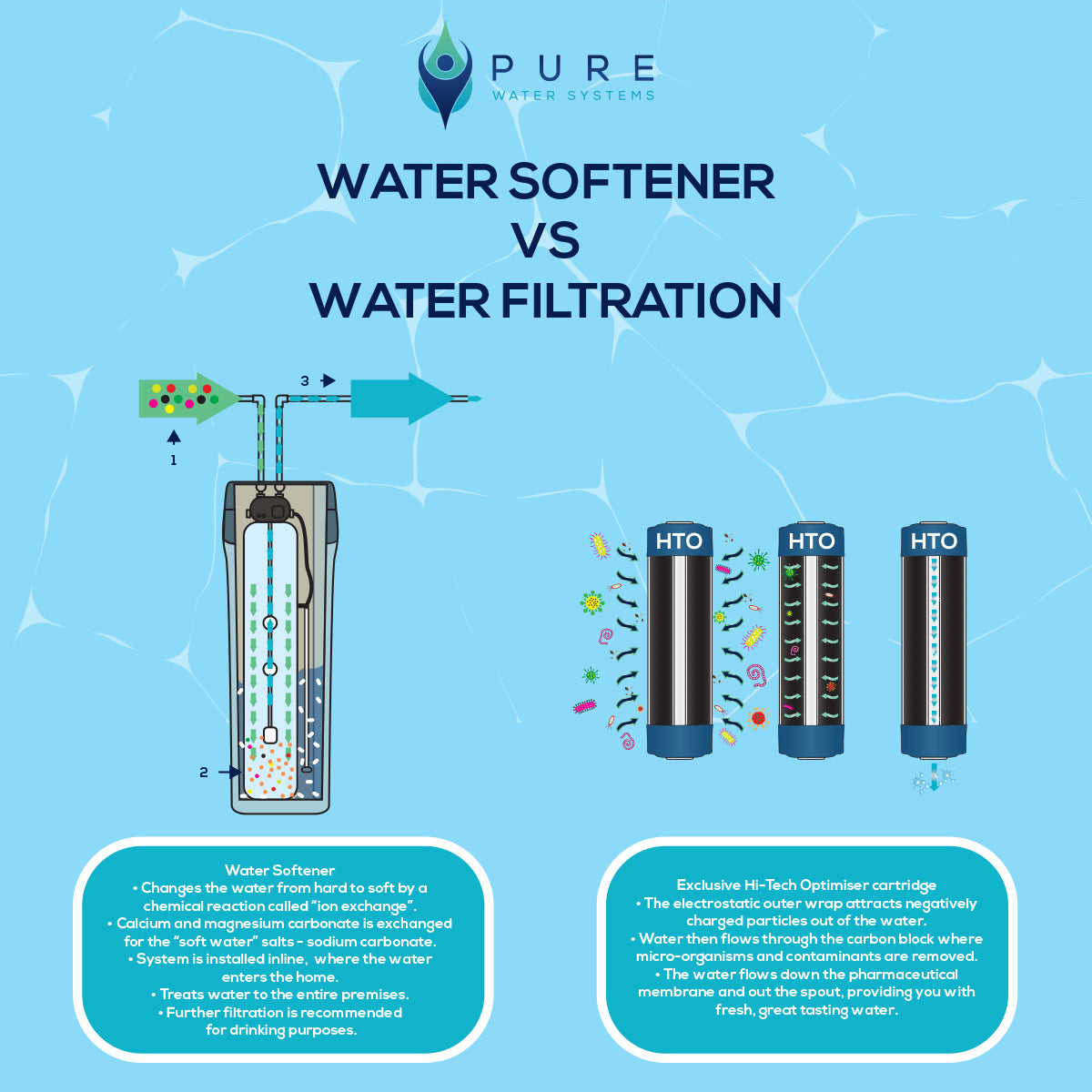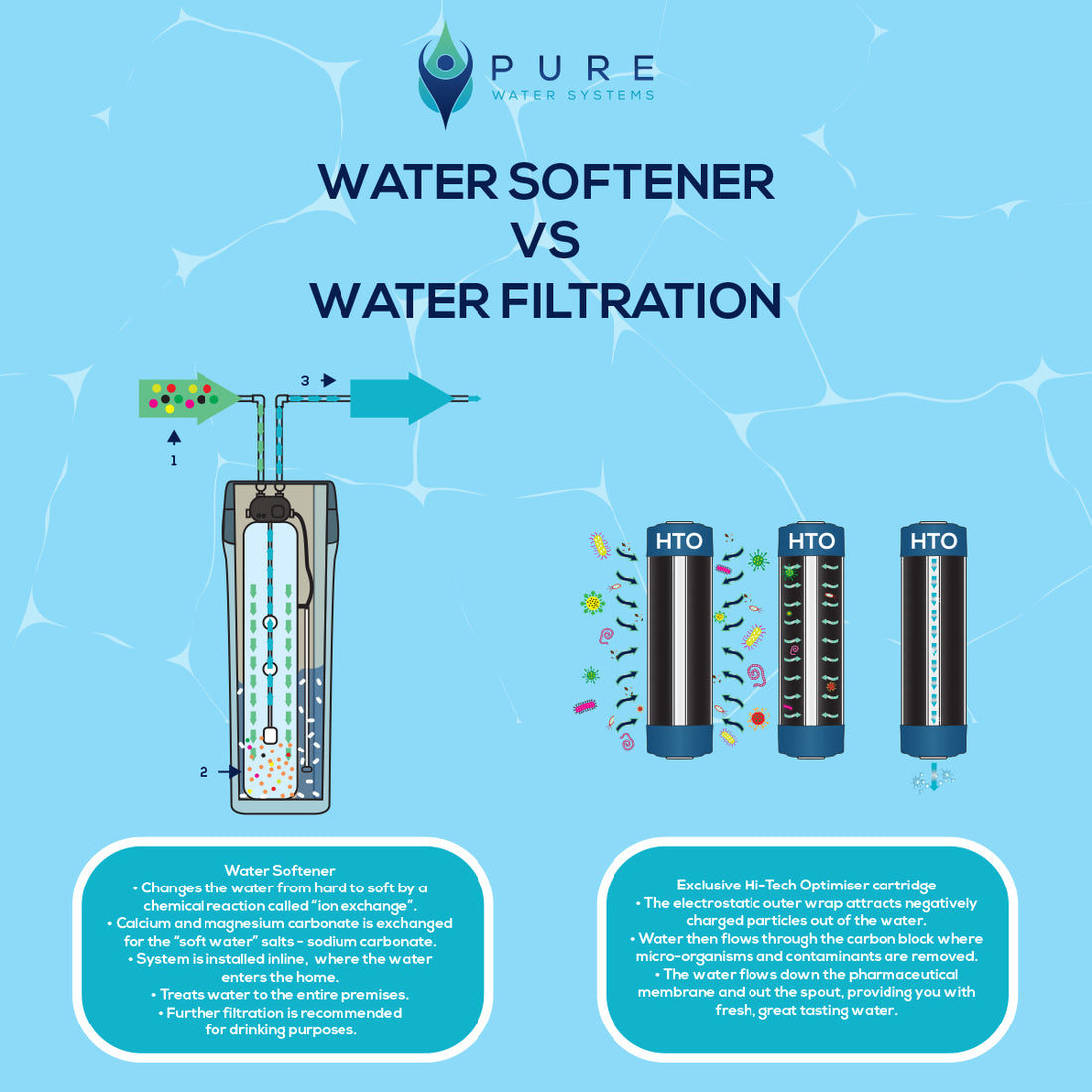Share This Story
There’s a common misconception that Water Filtration and Water Softening are similar water treatments, so here’s a simple explanation of the difference so you can choose the right system for your specific needs!
Water Softening
A water softener is designed for water that is considered “hard”, which typically means that it is high in calcium and magnesium. Hard water can be found in some areas of Australia where bore water or treated town water are commonly used.
If you have hard water, you may notice a white build up on your shower screens, shower heads, taps, kettle, or you may find it hard to achieve a lather with your soap or cleaning products.
A water softener removes calcium and magnesium from the water using an exchange process called “ion exchange”. The ion exchange process exchanges calcium and magnesium ions for sodium, therefore removing the calcium and magnesium and “softening” the water. Find our Water Softener here
Water Filtration
Water filtration is the process of reducing or removing contaminants from the water (particularly drinking water) by using a filter to physically block contaminants from coming through, as well as reducing chemicals through the adsorption process. This process is most commonly used in domestic environments to improve the quality of the drinking water.
Whilst all filters may look the same, the quality of the filter you purchase, as well as the stages and actions of filtration it provides, will make a big difference in the quality of water that you receive. Find our Filters here.
Can you use both systems at the same time?
Yes absolutely! Whilst the water from a water softener is free from calcium and magnesium, further filtration is recommended for drinking purposes to reduce chlorine, taste and odour, bacteria and parasites, sediment, rust and lead.

